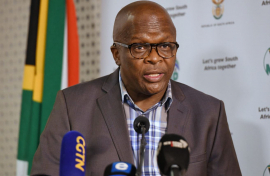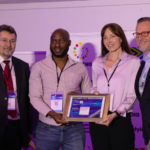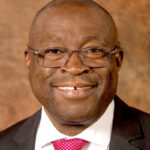Minister in the Presidency Mondli Gungubele says efforts to continuously develop, review and update evaluation guidelines and tools is important to ensure that standard practices remain up to date.
“I must commend the recent joint work between the Department of Planning, Monitoring and Evaluation (DPME) and the South African Monitoring and Evaluation Association (SAMEA) for developing two new guidelines, one on ‘integrating a transformative equity criterion into evaluation’ and the other on ‘applying the climate and ecosystem health criterion in evaluations’,” Gungubele said.
Addressing the National Evaluation Seminar hosted by DPME on Tuesday, Gungubele said the event was an important platform for learning and engagement between DPME and all the actors in the evaluation community about the institutionalisation of the national evaluation system.
The seminar was held under the theme: Sustaining the National Evaluation System in Recent Times.
“Interactions through this seminar provides an opportunity to share knowledge and best practices in the field of evaluation and to inform what activities, methodologies, approaches and technologies can be adopted, enhanced and applied in the evolving evaluation ecosystem,” Gungubele said.
Monitoring and evaluation, he said, must give insights to help to lead and contribute to the change and also adapt to change in a dynamic way.
“The October 2022 UNDP National Evaluation Capacities Conference reminded us about the extent to which we have regressed on some of the Sustainable Development Goals (SDGs).
“As much as we are facing compounded crises, there are unlimited opportunities for us to innovate and overcome. The multiple crises we are confronted with require us to build resilient communities,” Gungubele said.
“Evaluations must offer us options to address the recurrent challenges of development we are dealing with,” he said.
Evaluation evidence also needs to be timely so that it makes contribution at the most appropriate moment when important decisions need to be made.
“Across the system, there is need to drastically improve the turnaround time from conception of evaluation concepts to the delivery of evaluation results and recommendations.
“I am encouraged to hear that we are making progress in implementing approaches of Rapid Evaluation and Evidence Synthesis to expand our evaluation toolkit,” Gungubele said.
He said at an international level, the DPME is representing South Africa in a collaborative exercise for the revision of the widely used Development Assistance Committee (DAC) Criteria for Evaluation that the Organisation for Economic Cooperation and Development (OECD) introduced in 1991.
“The value of evaluations is realised when recommendations are implemented and when the knowledge generated is applied,” he said.












